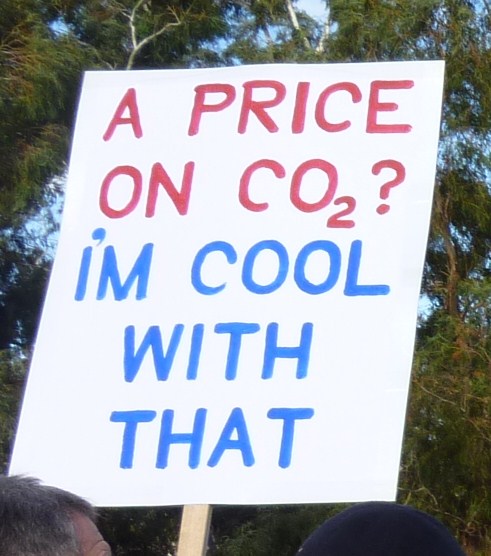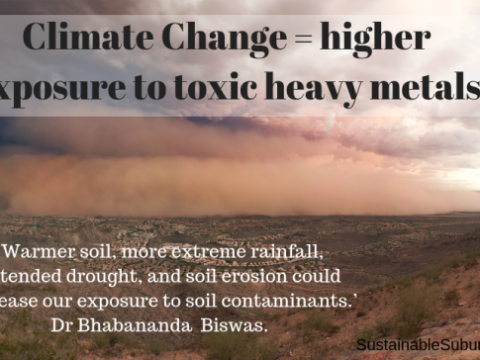It’s the European Union’s 3rd annual Climate Diplomacy Week and a powerful exhibition, highlighting the risk to national and international security from climate change, opens in my town today, at UNSW Canberra.
The EU’s touring exhibition, “Environment, Conflict & Cooperation”, visualises the multiple repercussions that climate change has on global health and food security, particularly in Pacific.

Governments need to be proactive when dealing with climate security, according to UNSW Canberra Climate Change expert Professor Anthony Burke.
“Countries such as Australia have been too slow in responding to the security implications of climate change,” he said.
“It will have major implications for our defence forces and our regional neighbours. We need to get past partisan bickering and get on with securing our region.”
“Climate change was one of many triggers for the genocide in Darfur and the civil war in Syria, which has destabilised the entire Middle-East.”
“In the South Pacific, it is an existential threat to countries such as the Marshall islands, Kiribati, Tuvalu, and Tokelau, whose agriculture is already threatened by rising salinity and sea-level rise three times the global average.”
There will be a public forum at UNSW Canberra on 12 July, “Climate Change and International Security: Meeting the Challenge”, which brings together leading climate scientist Will Steffen, Admiral (ret.) Chris Barrie and climate security experts from UNSW, the University of Queensland and the University of Melbourne.
UNSW Canberra will host the EU’s exhibition from from June 21 – 13 July, Monday to Friday, 9:00am – 5:30pm at Adams Auditorium, Building 111, Australian Defence Force Academy (ADFA).
During the Climate Diplomacy Week in Australia, there will also be events in Melbourne and Adelaide to aid in the mission of promoting ambitious climate policies that include climate resilience and adaptation policies to foster peace and stability worldwide.
For more information: https://www.unsw.adfa.edu.au/
Healthy Family | Healthy World




